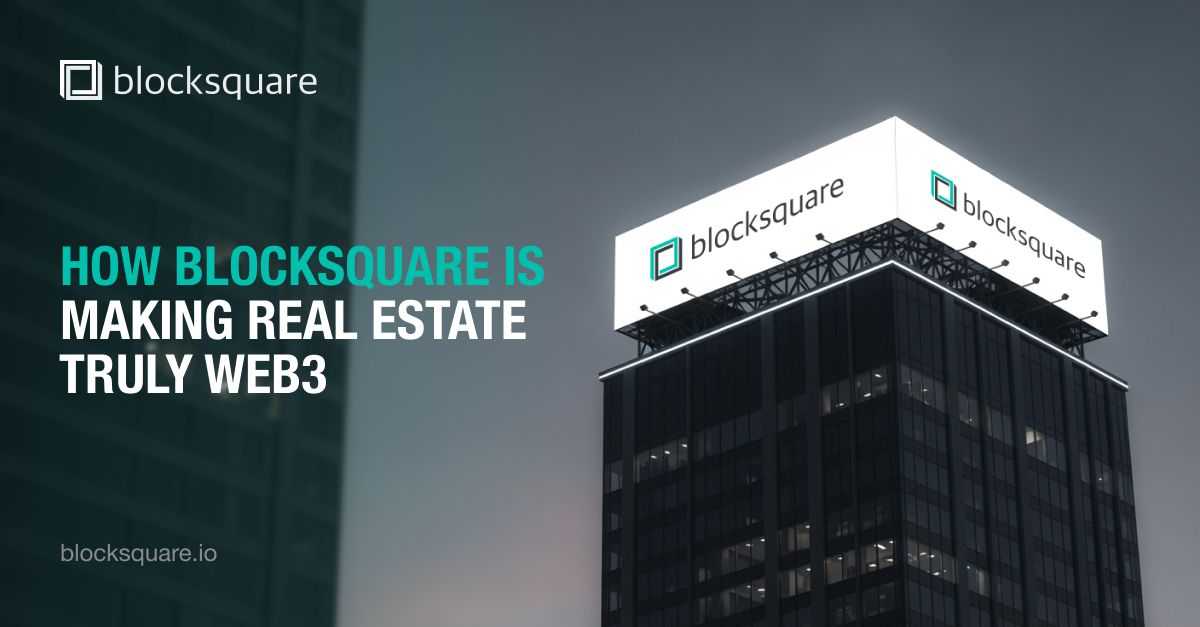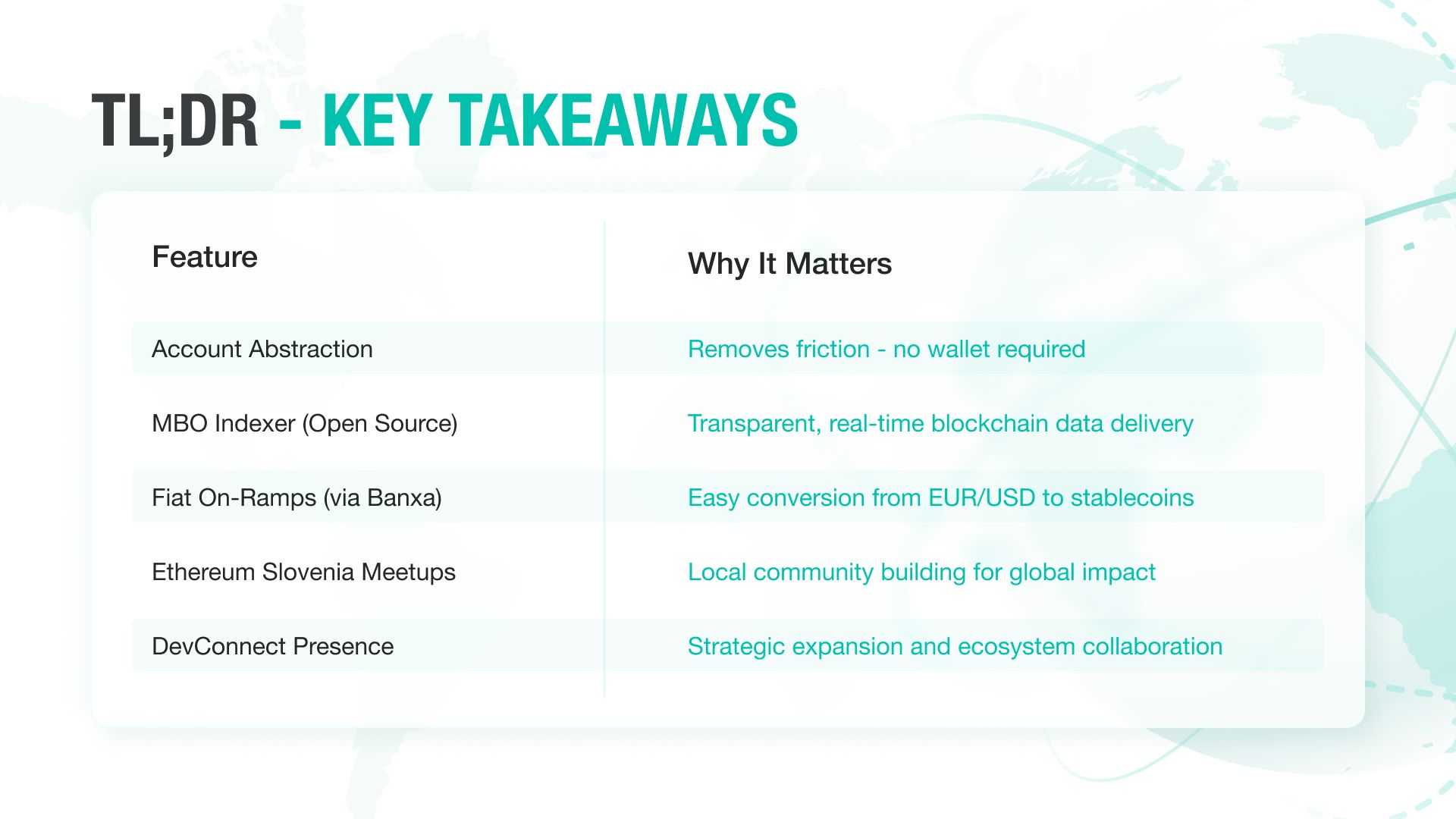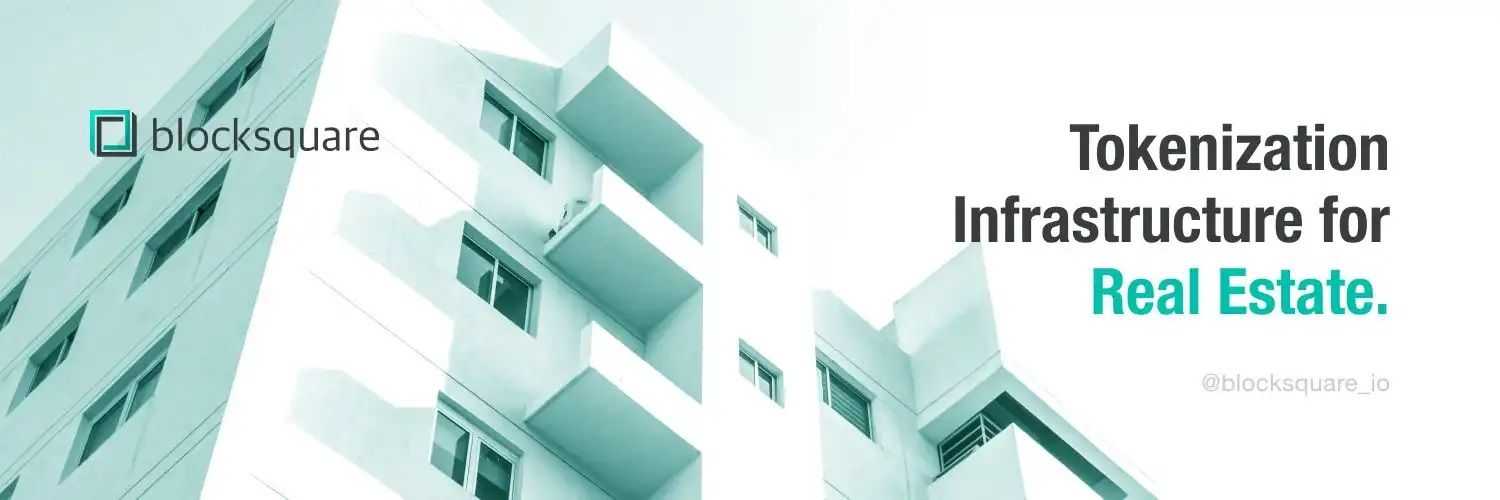How Blocksquare Is Making Real Estate Truly Web3
From Account Abstraction to Open Indexers — the Road to Seamless Property Tokenization.


“We want the average person to invest in real estate with the same ease they use Spotify or Airbnb.” — Kristjan Bajuk, Senior Full-Stack Web3 Engineer at Blocksquare
The Problem We're Solving
Real estate is the world’s most valuable asset class — yet it's one of the least accessible and most illiquid. The barriers are high: six-figure minimums, complicated legal frameworks, and slow cross-border transactions.
At Blocksquare, we’re solving this by using blockchain to tokenize real-world real estate — and we’re not just talking about it. We’re doing it, live, on-chain.
This blog post breaks down a recent behind-the-scenes conversation with our Senior Full-Stack Web3 engineer Kristjan Bajuk, featured on Block-Chat Episode #122
We dig into:
-
The tech powering our tokenized real estate platform
-
Why account abstraction is a game-changer
-
How we're keeping development cycles fast and open
-
And what’s next as we head to DevConnect in Argentina
Christian’s Journey Into Web3
Kristjan didn’t start in blockchain. Like many, he came from a traditional web development background, working on front-end apps. But when he discovered Ethereum and the ethos of decentralization, something clicked.
“I wasn’t always like this,” he said. “But once I saw what Web3 was about — the values, the transparency, the opportunity — I had to be in this space.”
His first real taste of the ecosystem came when ConsenSys invited him to ETHCC in Paris. There, he met the MetaMask team and a wide range of builders working on Ethereum projects. That experience led him deeper into the space — and eventually to Blocksquare, where he joined nearly a year ago.
Building Infrastructure for Real Estate Tokenization
Blocksquare isn’t a hype project. It’s a live, working platform that allows properties to be tokenized and traded on-chain. To make that happen, there’s a deep tech stack running underneath — from smart contracts to custom-built indexers that organize and serve blockchain data to the user interface.
When Kristjan joined, one of his first assignments was to help evolve our indexing layer. We had initially used The Graph, a popular tool for indexing Ethereum data, but we ran into bottlenecks. The solution was to migrate to Envio, a more flexible and developer-friendly platform.
With Envio, Kristjan helped lead the development of our in-house indexer — the MBO — which powers the data layer of our ecosystem today. It’s fast, customizable, and has now been open-sourced for transparency and community use.
“When you build an indexer,” he explained, “you get exposed to the entire stack — smart contracts, backend logic, and front-end integration. It was the perfect way to learn how the whole system works.”
From Ethereum Slovenia to DevConnect Buenos Aires
Kristjan doesn’t just write code — he builds community, too. He’s one of the organizers of Ethereum Slovenia, a growing group of Web3 builders, founders, and curious minds who gather regularly for meetups in Ljubljana.
“These events matter,” he said. “We’re all working remotely, but face-to-face conversations are where real ideas happen. It’s about building bridges — not just networks.”
The meetups regularly draw 70 to 100 people, a strong turnout in a city of Ljubljana’s size. And this month, Kristjan takes that spirit global again as he heads to DevConnect in Buenos Aires. The goal? To meet partners, learn from other builders, and represent Blocksquare in a global conversation about what’s next for Web3.
Why Account Abstraction Changes Everything
One of the biggest projects Kristjan has led at Blocksquare recently is implementing account abstraction — a technology that might sound technical, but solves a very human problem.
Right now, onboarding into Web3 is a mess. Users have to install wallets like MetaMask, write down 12-word seed phrases, and understand how to pay gas fees in crypto. For most newcomers, that’s enough to give up before they begin.
Account abstraction changes the equation entirely. Instead of starting with a crypto wallet, users can simply sign up with an email. Behind the scenes, a smart wallet is created automatically — no seed phrases, no browser extensions, no prior crypto experience required.
“We want users to just show up, sign in, and invest,” Kristjan explained. “They don’t need to know what USDC is or how Ethereum works. That’s our job to handle — not theirs.”
The feature is now in its final stages of development, with internal testing underway. If all goes to plan, Blocksquare will roll out account abstraction to users in the coming weeks — opening up real estate tokenization to a much wider audience.
Solving the Fiat Barrier
While account abstraction simplifies onboarding, one key challenge remains: moving money from traditional bank accounts into crypto-compatible assets like USDC. Most users earn and save in fiat currencies — euros, dollars, pounds — not stablecoins.
To bridge that gap, Blocksquare is integrating fiat onramps using partners like Banxa. The result is a seamless flow: sign up with email, deposit with fiat, receive USDC in your smart wallet, and start investing.
No centralized exchanges. No waiting days for bank wires. No crypto background needed.
“Once we solve the fiat onramp cleanly,” said Christian, “we can offer a truly frictionless experience — and that’s when real adoption happens.”
Why This All Matters
It’s easy to get caught up in the tech — but the bigger picture is this: Blocksquare is building a system where anyone, from anywhere, can invest in real estate quickly, affordably, and securely.
Instead of needing €100,000 to buy a property, you could start with €100 and own a share of a tokenized building. Instead of managing legal contracts or escrow services, you interact with a smart contract. And instead of waiting weeks for documents to be signed and funds to clear, everything happens in minutes.
That’s the promise of tokenized real estate — and with account abstraction and fiat integration, we’re getting closer to making that a reality for everyone.

Looking Ahead
Over the next couple of months, Blocksquare’s roadmap includes the public launch of account abstraction, fiat onramping, and additional ecosystem integrations. Kristjan will be attending DevConnect to scout new tools and meet partners in the RWA (real world asset) space.
At the same time, our open-source work continues, with more components of our infrastructure made available to the broader Web3 development community.
And in Slovenia, Ethereum meetups will continue — bridging the gap between local curiosity and global innovation.
Final Thoughts
The future of Web3 real estate isn’t about flashy headlines or speculative hype. It’s about solving real problems with elegant, secure, user-friendly infrastructure.
Kristjan said it best: “Most users shouldn’t even know they’re using blockchain. It should just work. That’s when we’ve done our job.”
At Blocksquare, we’re getting closer every day — and the door is open for anyone who wants to build with us.
Start Something Local: Become a Blocksquare Ambassador
Inspired by what Kristjan and the Ethereum Slovenia team have built?
You don’t need to wait for a big conference or a global partner. You can start your own local hub right now. If you’re passionate about Web3, real estate, and financial inclusion, consider becoming a Blocksquare Ambassador.
As an ambassador, you’ll get the tools and support to:
-
Host meetups in your city
-
Educate your local community about tokenized real estate and RWAs
-
Connect with like-minded builders and investors
-
Grow the movement where you live
This is your chance to put your city on the map and help shape the future of real estate investing.
